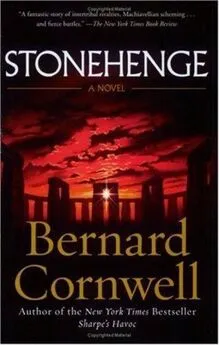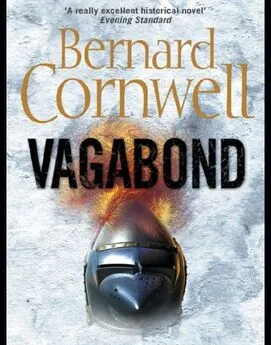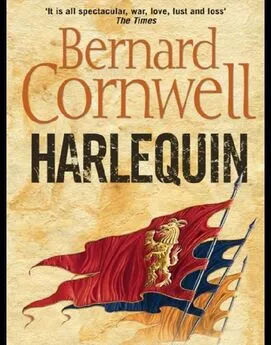Bernard Cornwell - Stonehenge
- Название:Stonehenge
- Автор:
- Жанр:
- Издательство:неизвестно
- Год:неизвестен
- ISBN:нет данных
- Рейтинг:
- Избранное:Добавить в избранное
-
Отзывы:
-
Ваша оценка:
Bernard Cornwell - Stonehenge краткое содержание
Bernard Cornwell's new novel, following the enormous success of his Arthurian trilogy (The Winter King, Enemy of God, and Excalibur) is the tale of three brothers and of their rivalry that creates the great temple. One summer's day, a stranger carrying great wealth in gold comes to the settlement of Ratharryn. He dies in the old temple. The people assume that the gold is a gift from the gods. But the mysterious treasure causes great dissension, both without from tribal rivalry, and within. The three sons of Ratharryn's chief each perceive the great gift in a different way. The eldest, Lengar, the warrior, harnesses his murderous ambition to be a ruler and take great power for his tribe. Camaban, the second and an outcast from the tribe, becomes a great visionary and feared wise man, and it is his vision that will force the youngest brother, Saban, to create the great temple on the green hill where the gods will appear on earth. It is Saban who is the builder, the leader and the man of peace. It is his love for a sorceress whose powers rival those of Camaban and for Aurenna, the sun bride whose destiny is to die for the gods, that finally brings the rivalries of the brothers to a head. But it is also his skills that will build the vast temple, a place for the gods certainly but also a place that will confirm for ever the supreme power of the tribe that built it. And in the end, when the temple is complete, Saban must choose between the gods and his family. Stonehenge is Britain's greatest prehistoric monument, a symbol of history; a building, created 4 millenia ago, which still provokes awe and mystery. Stonehenge A novel of 2000 BC is first and foremost a great historical novel. Bernard Cornwell is well known and admired for the realism and imagination with which he brings an earlier world to life. And here he uses all these skills to create the world of primitive Britain and to solve the mysteries of who built Stonehenge and why. 'A circle of chalk, a ring of stone, and a house of arches to call the far gods home'
Stonehenge - читать онлайн бесплатно ознакомительный отрывок
Интервал:
Закладка:
Galeth arrived with a half-dozen men and squatted near his brother's hut. All of them carried spears and Hengall understood that they had come to support him, but he made no mention of the expected confrontation. Instead he asked Galeth whether he had found an oak large enough to replace the decayed temple pole in Lahanna's shrine.
'We found it,' Galeth said, 'but we didn't cut it.'
'You didn't cut it?'
'The day was late, the axes blunt.'
Hengall grinned. 'Yet I hear your woman's pregnant?'
Galeth looked coyly pleased. His first wife had died a year before, leaving him with a son a year younger than Saban, and he had just taken a new woman. 'She is,' he admitted.
'Then at least one of your blades is sharp,' Hengall said, provoking more laughter.
The laughter died abruptly, for Lengar chose that moment to appear from his own hut, and in that grey morning he shone like the sun itself. Ralla, his mother and Hengall's oldest wife, must have sat through the stormy darkness threading the small lozenges on sinews so that her son could wear them all as necklaces, and she had sewn the four large gold pieces directly onto his deerskin jerkin over which he wore the stranger's gold-buckled belt. A dozen young warriors, all of them Lengar's close hunting companions, followed him while behind that spear-carrying band was a muddy group of excited children who waved sticks in imitation of the hunting spear in Lengar's hand.
Lengar ignored his father at first. Instead he paraded through the huts, past the two temples built within the great embankment, then up to the potters' huts and tanners' pits at the north of the enclosure. His followers clashed their spears together, and more and more folk gathered behind him so that eventually he led his excited procession in an intricate path that twisted between the rain-soaked thatch of the low round huts. Only after he had threaded the settlement twice did he turn towards his father.
Hengall stood as his son approached. He had let Lengar have his time of glory, and now he stood and shrugged the bear cloak from his shoulders and threw it, fur down, into the mud at his feet. He wiped the mist's moisture from his face with the ends of his big beard, then waited bare-chested so that all the folk in Ratharryn could see how thick the blue marks of dead enemies and slaughtered beasts clustered on his skin. He stood silent, the wind stirring his ragged black hair.
Lengar stopped opposite his father. He was as tall as Hengall, but not so heavily muscled. In a fight he would probably prove the quicker man while Hengall would be the stronger, yet Hengall showed no fear of such a fight. Instead he yawned, then nodded at his eldest son. 'You have brought me the stranger's gold. That is good.' He gestured at the bear cloak that lay on the ground between them. 'Put everything there, son,' he growled.
Lengar stiffened. Most of the watching tribe thought he would fight, for his eyes bespoke a love of violence that verged on madness, but his father's gaze was steady and Lengar chose to argue instead of striking with his spear. 'If a man finds an antler in the woods,' he demanded, 'must he give it to his father?' He spoke loudly enough for all the crowd to hear. The people of Ratharryn had clustered between the nearer huts, leaving a space for the confrontation, and some of them now called out their agreement with Lengar. 'Or if I find the honey of the wild bees,' Lengar asked, emboldened by their support, 'must I endure the stings, then yield the honey to my father?'
'Yes,' Hengall said, then yawned again. 'In the cloak, boy.'
'A warrior comes to our land,' Lengar cried, 'a stranger of the Outfolk, and he brings gold. I kill the stranger and take his gold. Is it not mine?' A few in the crowd shouted that the gold was indeed his, but not quite so many as had shouted before. Hengall's bulk and air of unconcern was unsettling.
The chief fished in a pouch that hung from his belt and took out the small lozenge that Saban had brought from the Old Temple. He dropped the scrap of gold onto the cloak. 'Now put the rest there,' he said to Lengar.
'The gold is mine!' Lengar insisted, and this time only Ralla, his mother, and Jegar, one of his closest friends, shouted their support. Jegar was a small and wiry man, the same age as Lengar, but already one of the tribe's greatest warriors. He killed in battle with an abandon that was equal to Lengar's own and he was avid for a fight now, but none of Lengar's other hunting companions had the belly to confront Hengall. They were relying on Lengar to win the confrontation and it seemed he would do that by violence for he suddenly raised his spear, but instead of stabbing with the blade he held it high in the air to draw attention to his words. 'I found the gold! I killed for the gold! The gold came to me! And is it now to be hidden in my father's hut? Is it to gather dust there?' Those words provoked sympathetic murmurs for many in Ratharryn resented the way Hengall hoarded treasures. In Drewenna or Cathallo the chief displayed his wealth, he rewarded his warriors with bronze, he hung his women with shining metal and he made great temples, but Hengall stored Ratharryn's wealth in his hut.
'What would you do with the gold?' Galeth intervened. He was standing now, and he had untied his tail of hair which hung black and ragged about his face so that he looked like a warrior on the edge of battle. His spear blade was levelled. 'Tell us, nephew,' he challenged Lengar, 'what will you do with the gold?'
Jegar hefted his spear to meet Galeth's challenge, but Lengar pushed his friend's blade down. 'With this gold,' he shouted, patting the lozenges on his chest, 'we should raise warriors, spearmen, archers, and end Cathallo for ever!' Now the voices that had first supported him shouted again, for there were many in Ratharryn who feared Cathallo's growth. Only the previous summer the warriors of Cathallo had taken the settlement of Maden that lay between Ratharryn and Cathallo, and hardly a week passed without Cathallo's warriors scouring Hengall's land for cattle or pigs, and many in the tribe resented that Hengall appeared to be doing nothing to stop the taunting raids. 'There was a time when Cathallo paid us tribute!' Lengar shouted, encouraged by the crowd's support. 'When their women came to dance at our temples! Now we cower whenever a warrior of Cathallo comes near! We grovel to that foul bitch, Sannas! And the gold and the bronze and the amber that could free us, where is it? And where will this gold go if I give it up? There!' With that last word he turned and pointed the spear at his father. 'And what will Hengall do with the gold?' Lengar asked. 'He will bury it! Gold for the moles! Metal for the worms! Treasure for the grubs! We scratch for flint and all the while we have gold!'
Hengall shook his head sadly. The crowd that had cheered Lengar's last words fell silent and waited for the fight to start. Lengar's men must have thought the moment was close for they summoned their courage and closed up behind their leader with levelled weapons. Jegar was dancing to and fro, his teeth bared and spear blade pointing at Hengall's belly. Galeth edged closer to Hengall, ready to defend his brother, but Hengall waved Galeth away, then turned, stooped and fetched his war mace from where it had been hidden under the low thatch of his hut's eave. The mace was a shaft of oak as thick as a warrior's wrist topped with a misshapen lump of grey stone that could crush a grown man's skull as if it were a wren's egg. Hengall hefted the mace, then nodded at the cloak of bear fur. 'All the treasure, boy,' he said, deliberately insulting his son, 'all of it, in the cloak.'
Lengar stared at him. The spear had a longer reach than the mace, but if his first lunge missed then he knew the stone head would break his skull. So Lengar hesitated, and Jegar pushed past him. Hengall pointed the mace at Jegar. 'I killed your father, boy,' he snarled, 'when he challenged me for the chiefdom, and I crushed his bones and fed his flesh to the pigs, but I kept his jawbone. Hirac!'
The high priest, his skin mottled with dirt and chalk, bobbed at the edge of the crowd.
'You know where the jawbone is hidden?' Hengall demanded.
'I do,' Hirac said.
'Then if this worm does not step back,' Hengall said, staring at Jegar, 'make a curse on his blood. Curdle his loins. Fill his belly with black worms.'
Jegar paused for a heartbeat. Although he did not fear Hengall's mace, he did fear Hirac's curse, so he stepped back. Hengall looked back at his son. 'In the cloak, son,' he said softly, 'and hurry! I want my breakfast!'
Lengar's defiance crumpled. For a second it seemed he would leap at his father, preferring death to dishonour, but then he just sagged and, with a despairing gesture, dropped the spear, unlooped the gold from his neck and cut the stitches holding the great lozenges to his jerkin. He placed all the lozenges in the bear cloak, then unclasped the belt and tossed it with its great gold buckle onto the lozenges. 'I found the gold,' he protested lamely when he had finished.
'You and Saban found it,' Hengall agreed, 'but you found it in the Old Temple, not in the woods, and that means the gold was sent to all of us! And why?' The chief had raised his voice so that all the folk could hear him. The gods have not revealed their purpose, so we must wait to know the answer. But it is Slaol's gold, and he sent it to us, and he must have had a reason.' He hooked the bear cloak with his foot, dragging it and the treasures towards his hut's doorway from where a pair of woman's hands reached out to haul the glittering pile inwards. A faint groan went through the crowd, for they knew it would be a long time before they ever saw that gold again. Hengall ignored the groan. There are those here,' he shouted, 'who would have me lead our warriors against the folk of Cathallo, and there are folk in Cathallo who would like their young men to attack us! Yet not all in Cathallo wish war on us. They know that many of their young men will die, and that even if they win the war they will be weakened by the fight. So there will be no war,' he finished abruptly. That had been a very long speech for Hengall, and a rare one in that he had revealed his thinking. Tell someone your thoughts, he had once said, and you give away your soul, but he was hardly giving away secrets when he declared his abhorrence of war. Hengall the Warrior hated war. The business of life, he liked to say, is to plant grain, not blades. He did not mind leading war bands against Outlanders, for they were strangers and thieves, but he detested fighting against the neighbouring tribes, for they were cousins and they shared Ratharryn's language and Ratharryn's gods. He looked at Lengar. 'Where's the dead Outlander?' he asked.
'In the Old Temple,' Lengar muttered. His tone was surly.
Take a priest,' Hengall instructed Galeth, 'and get rid of the body.' He ducked back into his hut, leaving Lengar defeated and humiliated.
The last of the mists vanished as the sun broke through the thin cloud. The moss-covered thatch steamed gently. The excitement in Ratharryn was over for the moment, though there were still the after-effects of the storm to marvel at. The river flowed above its banks, the great ditch which lay inside the encircling embankment was flooded and the fields of wheat and barley were beaten flat.
And Hengall was still the chief.
—«»—«»—«»—
The vast earthen embankment defined Ratharryn. Folk still marvelled that their ancestors had made such a wall for it stood five times the height of a man and ringed the huts where close to a hundred families lived. The bank had been scraped from soil and chalk with antlers and ox-blades, and was topped by the skulls of oxen, wolves and enemy spearmen to keep away the spirits of the dark forest. Every settlement, even the mean houses up on the higher land, had skulls to frighten the spirits, but Ratharryn mounted its skulls on the great earth bank that also served to deter and awe the tribe's enemies.
Читать дальшеИнтервал:
Закладка:


